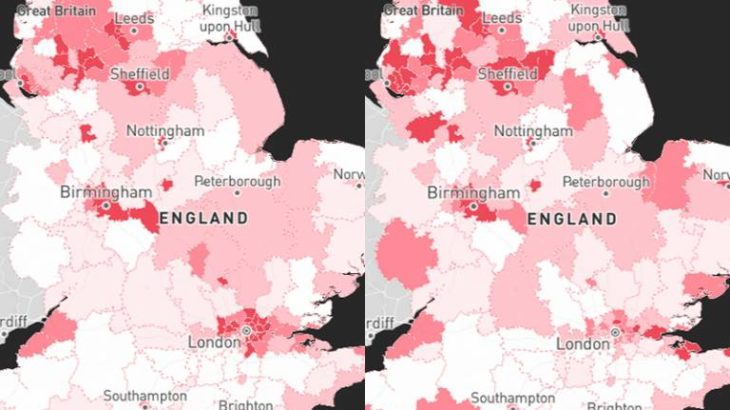Regional disparities in psychosis rates mapped in UCL-led project

Spending on mental health in England could be targeted better in future, thanks to a modelling tool developed by researchers from two Science and Engineering South institutions
The PsyMaptic modelling tool, which has been developed by a team including researchers at University College London and the University of Cambridge, estimates the expected number of people who will newly develop psychosis for each locality.
Using data on risk factors including deprivation, ethnicity, age, gender, cannabis use and social fragmentation, researchers found that people in some areas are nearly three times as likely to experience psychosis, compared to the England average.
The maps generated by the tool reveals a pattern of higher rates in urban areas with high levels of deprivation and large Black, Asian and minority ethnic (BAME) populations, such as Bradford, Manchester, and parts of London and the west Midlands.
These areas are estimated to have more than 50 people per 100,000 experiencing a first episode of psychosis per year, more than double the England average of 25.
Prediction data
The PsyMaptic tool is available online and provides both a current and forward-looking estimate up to 2025. The researchers say that this prediction data will allow the NHS to more effectively plan services based on specific, accurate models of the incidence of psychotic disorders predicted to occur in the general population, rather than relying on numbers of people accessing treatment.
The data also allows NHS policymakers, commissioners and service providers to better understand the number and sociodemographic breakdown of new people referred and requiring assessment and treatment for potential psychosis each year.
More detailed data in the tool, such as the demographic makeup of people with psychosis in an area, can help policy makers plan a range of interventions such as culturally sensitive services or youth services.
The research team brought together researchers from UCL’s Psychiatry and Statistical Science departments and Cambridge’s Psychiatry department.
The study was funded by Wellcome and the National Institute for Health Research UCLH Biomedical Research Centre, and also involved researchers from Manchester Metropolitan University, Hull-York Medical School, and Sichuan University.
Lead author Dr James Kirkbride of UCL Psychiatry has carried out studies into psychosis and has found higher rates among ethnic minority migrants who live in areas without other people of similar backgrounds, suggesting social inequalities and language differences could be risk factors.
Early intervention
He said: “While we still need to do more research to know exactly what’s causing these patterns, it’s clear that we need to resource early intervention in psychosis services according to accurate models of local need, so that everyone can get timely access to the mental health care they require.”
Co-author Professor Peter Jones from the University of Cambridge, who co-developed the PsyMaptic models, said: “The PsyMaptic prediction tool at last provides the NHS with fine-grained information to improve planning, commissioning and early intervention service delivery for people experiencing psychotic illness for the first time. It is a powerful example of the real-world impact of diligent mental health research.”


